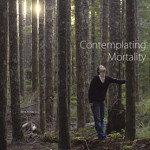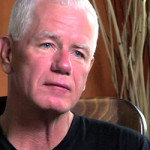
Guest contributor: Lyn Prashant, PhD FT
My beloved sister Donna was a gentle, loving, caring soul. She was my trusted confidant, my witness, my cheerleader, and my best friend. She died September 6, 2002, at age 49.
Donna was born three-and-a-half years after me, and from that time on she was there for me, and I for her. We were giddy and vulnerable with each other. I remember walking down the street with her, holding her hand, thinking about how lucky I was to have her as my very own sister. Our commitment and sense of knowing one another was astounding. A glance into her eyes affirmed: “She was both my sister and my best friend.”
When Donna was 36, she received the diagnosis of breast cancer. I had already lost my young husband to cancer, so the words sent shock waves through me again. Since the death of my husband, Mark, in 1984, I had embarked on a path of healing that involved “making peace with my own grief.” Stephen Levine, author of Who Dies? states, “we can be available to others in their grief to the extent that we know our own.” This was certainly a stunning way for me to assess how well I had transformed my grief over the loss of my husband.
“Be Responsible TO me… NOT for me.”
I remember feelings of disbelief at the sound and meaning of the doctor’s words, the physical sensation of numbness and my inability to think clearly. Later, when we went to have lunch, Donna looked into my eyes and asked: “Lyn, as my older sister, can you be my advocate? Please understand, I do not need you to be in charge of me. I need you to hear me and give me feedback.”
She then added, “What I really need is for you to be responsible TO me…NOT for me.”
My jaw dropped. Her simple request imprinted forever in my mind and heart, and it has changed the way I see my own role as a friend, family member and professional caregiver. How eloquent and how simply profound, I thought. “Yes Donna, I’ll practice and do my best to learn to be that,” I said.
Normalizing the journey and using grief as fuel
My professional work involved a process called Degriefing®. The dictionary says the prefix de- means “down to the bottom, totally, completely.” It is a painful trip to go down, completely, and then come up and out, but the Degriefing process normalizes the journey and allows our grief to be used as fuel. By engaging in verbal expression and then choosing specific activities (physical, emotional, mental and spiritual), this work can assist each of us in making peace with our grief.
There is loss and suffering every day on this planet we call Earth. If we allow ourselves to tune into the pain of global grief, we realize loss and grief are part of the human condition. We lose five minutes in traffic, we lose the sun at the end of the day, we lose our footing, and, “Oops, I just lost my train of thought!”






























